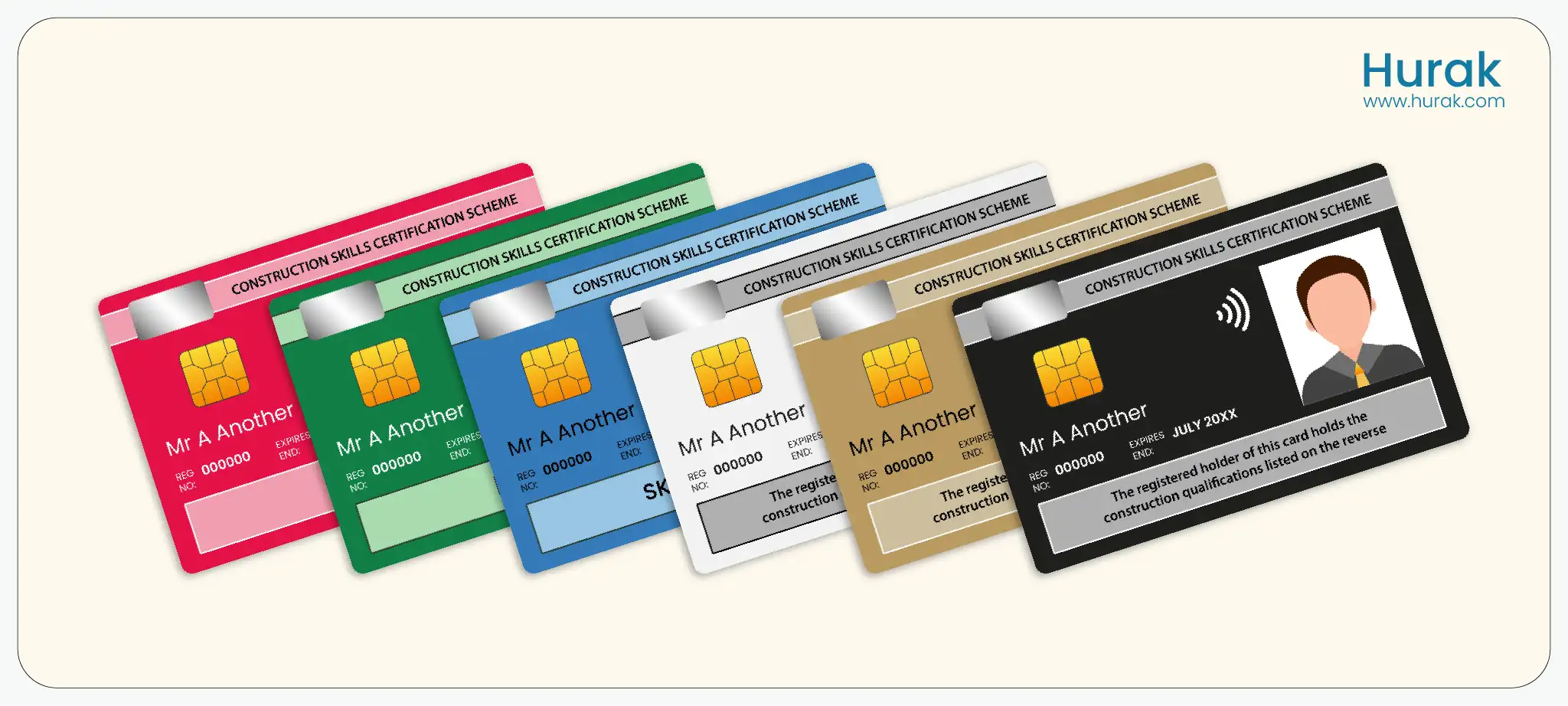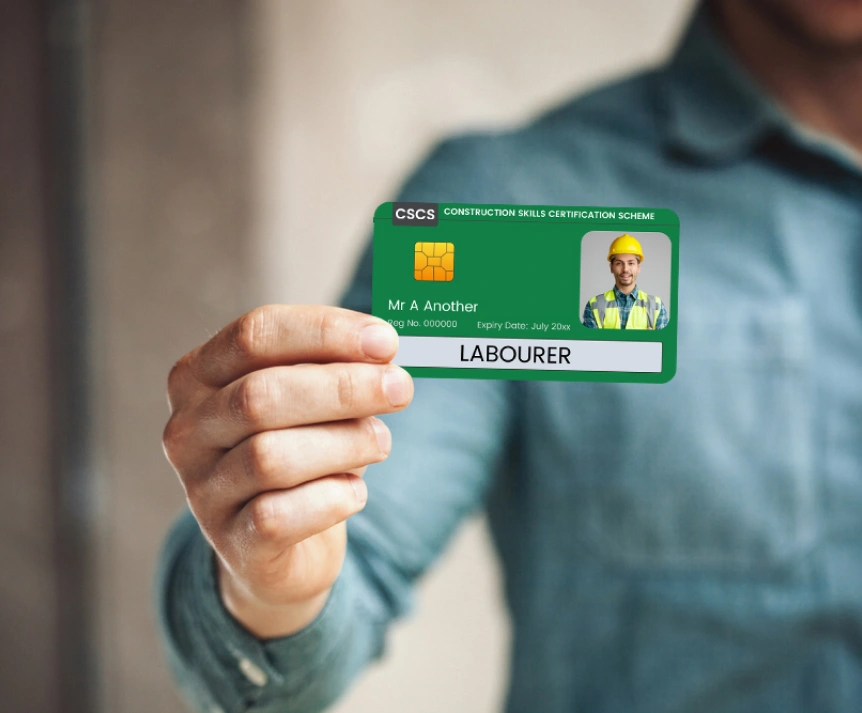
With construction projects booming and demand for skilled trades rising steadily, bricklaying remains one of the UK’s most in-demand and well-paid trades. In fact, searches for “bricklayers near me” have surged over the past year, showing no signs of slowing down. Entry-level bricklayers can expect to earn up to £32,000 per year (pre-tax), while experienced tradespeople running their own business may bring in upwards of £60,000 annually, especially when backed by recognised qualifications like a CSCS card.
How Much Do Bricklayers Earn in the UK?
According to the National Careers Service, bricklayers in the UK can expect to earn between £19,000 and over £50,000 annually, depending on their level of experience and qualifications.
Those just starting out in the trade, with less than one year of experience, typically earn between £19,000 and £24,000 per year.
Bricklayers with mid-level experience, usually holding an NVQ Level 2 qualification and having worked for two to four years, can expect to earn between £25,000 and £32,000 annually.
More experienced bricklayers, especially those who hold CSCS Blue or Gold cards, generally command higher wages ranging from £34,000 to over £50,000 per year.
Having a CSCS card often opens doors to better-paying commercial roles, longer contracts, and reduces the likelihood of being turned away at site entrances.
Here’s a simple breakdown of expected salary ranges by experience:
Experience Level | Typical Annual Salary (£) | Notes |
Starters (less than 1 year of experience) | £19,000 – £24,000 | Entry-level bricklayers |
Mid-level (NVQ Level 2 + 2 – 4 years) | £25,000 – £32,000 | Qualified bricklayers with some experience |
Experienced (CSCS Blue/Gold Card) | £34,000 – £50,000+ | Senior and highly qualified workers |
What Is a CSCS Card and Why Does It Matter for Pay?

A CSCS card (Construction Skills Certification Scheme) proves you have the proper training and qualifications to work safely on a construction site.While not legally required, most UK construction employers and those with large sites typically demand it.
If you’re a bricklayer, the three main CSCS card types relevant to you are:
Red CSCS Cards (Temporary)
Red CSCS cards are issued to those currently training or working towards their NVQ qualification. If you’re an apprentice bricklayer, you’ll need the Apprentice CSCS Card.
Those studying a recognised bricklaying qualification can apply for the Trainee CSCS Card.
If you have more than one year of site experience but haven’t completed your NVQ Level 2, you may be eligible for the Experienced Worker CSCS Card.
Similarly, experienced workers aiming for an NVQ Level 3 can apply for the Experienced Technical CSCS Card.
Explore each card in detail here: Bricklayer CSCS Card
Blue Skilled Worker CSCS Card
The most common card for bricklayers, available to those who hold NVQ Level 2 in Bricklaying and have passed the CITB Health, Safety and Environment Test.
Blue cardholders often earn more, enjoy more consistent work, and have fewer site restrictions.
Want to earn your Blue Card? Book your NVQ Level 2 in Bricklaying now
Gold Skilled Worker CSCS Card
This card is for advanced bricklayers who hold NVQ Level 3 in Bricklaying and are often in supervisory roles. The Gold Card is a mark of seniority on-site and can increase access to higher-paying leadership positions.
Ready to move up? Get qualified for the Gold Card today
Does a CSCS Card Increase Your Earning Potential?
A CSCS card can significantly boost your income potential as a bricklayer. Those who hold a CSCS card often qualify for higher-paying roles, especially on commercial and public sector projects where proof of qualification and health and safety training is essential. Employers tend to favour CSCS-certified workers because it assures them of a certain standard of professionalism and skill.
Having a CSCS card also reduces the chances of being turned away at site gates and opens up long-term, better-paid contracts. Whether you’re new to the trade or already experienced, holding a CSCS card enhances your employability and makes you more valuable in the eyes of employers.
Other Factors That Affect Bricklayer Salaries
While holding a CSCS card is essential, your overall earnings as a bricklayer also depend on a variety of other factors. Location plays a significant role; those working in London and the South East often command higher rates.
Experience and the quality of your work also matter greatly, as do any additional skills you bring to the table, such as repointing, plastering, or site leadership.
Bricklayers who own their tools and have their own transport are also more flexible and often more desirable to employers.
Read more on How to Become a Bricklayer in the UK or
See related NVQ’s on Hurak:
NVQ Level 2 in Plastering – Builds complementary skills valuable for varied site work and completable alongside bricklaying.
NVQ Level 2 in Wall and Floor Tiling – Adds versatility that makes you more attractive to a wider range of employers.
NVQ Level 2 in Painting and Decorating – A finish skill that enables you to offer fuller job packages, especially in residential projects.
NVQ Level 2 in Passive Fire Protection – A specialised qualification increasingly in demand on larger sites.
NVQ Level 2 in Roofing Occupations – Broadens your trade skill set, often paired with external brickwork.
NVQ Level 2 in Carpentry – Adds structural woodworking competence, making you more flexible on multi-trade projects.
NVQ Level 2 in Stonemasonry – Ideal for bricklayers who want to work on heritage, restoration, or specialist stone jobs.
Can You Work (and Get Paid) Without a CSCS Card?
It is possible to work as a bricklayer without a CSCS card, but your opportunities will be limited. You can take on work with small contractors or private domestic clients and carry out labour-only tasks.
However, most commercial and public-sector construction sites require a CSCS card to gain access and undertake work.
As these larger sites often offer more secure, higher-paying jobs, not having a CSCS card can restrict your earning potential significantly.
Read our article on Gaining Site Work as a Bricklayer
Career Tips to Increase Your Pay as a Bricklayer
Improving your earnings isn’t just about qualifications; it’s also about maintaining quality and expanding your skill set. Poor workmanship, like messy pointing or uneven lines, can harm your reputation and limit future opportunities.
Repointing is a valuable skill that many homeowners and contractors seek out, especially for restoration projects. Gaining experience in this area can help you stand out from other bricklayers.
Finally, pursuing NVQ qualifications while working allows you to upskill without stepping away from your job. The more qualified and versatile you are, the more doors you’ll open in your career.
Read our articles on Common Bricklaying Mistakes and Common Mistakes When Repointing Brickwork or Book your NVQ Level 2 in Bricklaying
Conclusion
If you’re serious about earning more as a bricklayer, focus on two things: sharpening your skills and proving them. Getting the right NVQ and a CSCS card not only increases your earning potential but also opens the door to bigger projects, better clients, and longer-term work.
Don’t let missed qualifications limit your income. Start your journey with the right training and get ahead on site. Get qualified. Apply for your CSCS card. Start building your future.
Boost Your Skills While You Work
Already on-site? You don’t need to step away from your job to get qualified. With our NVQ Level 2 Bricklaying course, you can gain certification through on-site assessment at your pace, on your schedule.
FAQ
Do I need a CSCS card to become a bricklayer?
No, it’s not legally required to start working as a bricklayer, but most employers especially on larger or commercial sites, will expect you to have one. A CSCS card proves your competence, training, and awareness of health and safety standards.
Can I get a bricklaying job without qualifications?
Yes, you can start as a labourer or trainee under the supervision of experienced bricklayers. However, gaining a recognised qualification like an NVQ Level 2 significantly improves your earning potential and career prospects.
How do I get a CSCS card as a bricklayer?
You’ll need to complete an NVQ in bricklaying (Level 2 for the Blue Card or Level 3 for the Gold Card) and pass the CITB Health, Safety and Environment test. Then you can apply for the appropriate CSCS card.
What’s the difference between Blue and Gold CSCS cards?
The Blue Skilled Worker card is for those with NVQ Level 2, while the Gold Skilled Worker card is for those who have completed NVQ Level 3 and often take on more senior or supervisory roles on-site.
How long does it take to get a CSCS card?
If you already have your NVQ and have passed the CITB test, you can usually receive your card within 10–20 working days after applying.
Does the CSCS card expire?
Yes. Most CSCS cards are valid for five years. You’ll need to renew your card before it expires by retaking the CITB test and, in some cases, showing continued competence in your role.
Need Help Getting Qualified? Hurak makes it easy to book your NVQ, prepare for the CITB test, and apply for your CSCS card all in one place.
Call us on 0333 344 1293 or visit Hurak.com to get started.




